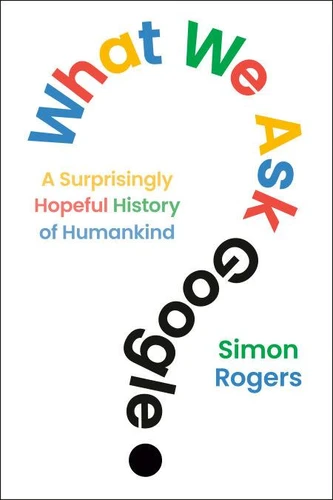What We Ask Google. A Surprisingly Hopeful History of Humankind
Par :Formats :
Actuellement indisponible
Cet article est actuellement indisponible, il ne peut pas être commandé sur notre site pour le moment. Nous vous invitons à vous inscrire à l'alerte disponibilité, vous recevrez un e-mail dès que cet ouvrage sera à nouveau disponible.
Disponible dans votre compte client Decitre ou Furet du Nord dès validation de votre commande. Le format ePub protégé est :
- Compatible avec une lecture sur My Vivlio (smartphone, tablette, ordinateur)
- Compatible avec une lecture sur liseuses Vivlio
- Pour les liseuses autres que Vivlio, vous devez utiliser le logiciel Adobe Digital Edition. Non compatible avec la lecture sur les liseuses Kindle, Remarkable et Sony
- Non compatible avec un achat hors France métropolitaine
 , qui est-ce ?
, qui est-ce ?Notre partenaire de plateforme de lecture numérique où vous retrouverez l'ensemble de vos ebooks gratuitement
Pour en savoir plus sur nos ebooks, consultez notre aide en ligne ici
- Nombre de pages288
- FormatePub
- ISBN8217176991
- EAN9798217176991
- Date de parution05/05/2026
- Protection num.Adobe DRM
- Infos supplémentairesepub
- ÉditeurPlume
Résumé
Ever wondered what goes through other people's minds-their silly questions, their inner anxieties, hopes, and dreams?In What We Ask Google, Simon Rogers explores insights from the world's biggest dataset: an epic snapshot, two decades long and counting, of our collective brain. What it reveals about us might surprise you. Every June, for instance, the world sees a spike in searches for "How to help a bee." Reassuringly, people consistently want to know, "How often can you donate plasma?" And despite superficial differences (such as the deeply divided world map of cat people vs.
dog people), humanity has a lot more in common than we often acknowledge. After all, everywhere around the world, it's two a.m. when parents want to know how to get their baby to sleep. Brimming with insights that vary from the playful to the profound, What We Ask Google delves into the momentous and the mundane secrets of what we ask when we get the chance to ask anything, offering a surprisingly hopeful picture of humankind.
dog people), humanity has a lot more in common than we often acknowledge. After all, everywhere around the world, it's two a.m. when parents want to know how to get their baby to sleep. Brimming with insights that vary from the playful to the profound, What We Ask Google delves into the momentous and the mundane secrets of what we ask when we get the chance to ask anything, offering a surprisingly hopeful picture of humankind.
Ever wondered what goes through other people's minds-their silly questions, their inner anxieties, hopes, and dreams?In What We Ask Google, Simon Rogers explores insights from the world's biggest dataset: an epic snapshot, two decades long and counting, of our collective brain. What it reveals about us might surprise you. Every June, for instance, the world sees a spike in searches for "How to help a bee." Reassuringly, people consistently want to know, "How often can you donate plasma?" And despite superficial differences (such as the deeply divided world map of cat people vs.
dog people), humanity has a lot more in common than we often acknowledge. After all, everywhere around the world, it's two a.m. when parents want to know how to get their baby to sleep. Brimming with insights that vary from the playful to the profound, What We Ask Google delves into the momentous and the mundane secrets of what we ask when we get the chance to ask anything, offering a surprisingly hopeful picture of humankind.
dog people), humanity has a lot more in common than we often acknowledge. After all, everywhere around the world, it's two a.m. when parents want to know how to get their baby to sleep. Brimming with insights that vary from the playful to the profound, What We Ask Google delves into the momentous and the mundane secrets of what we ask when we get the chance to ask anything, offering a surprisingly hopeful picture of humankind.





